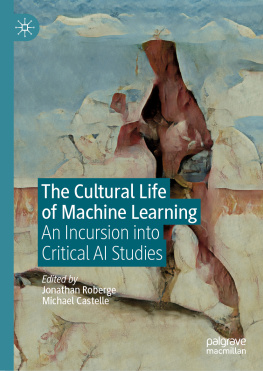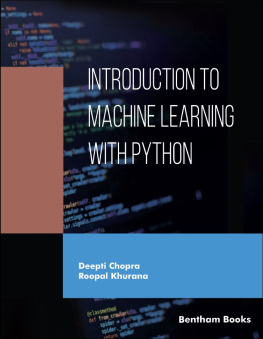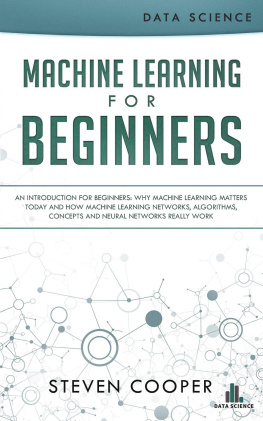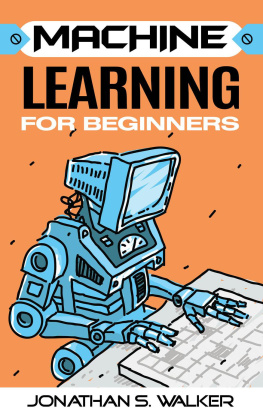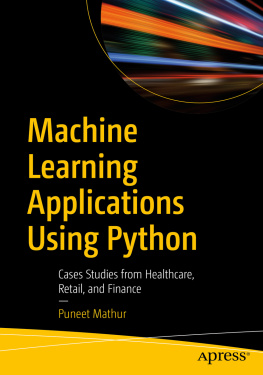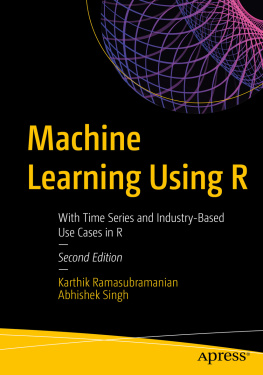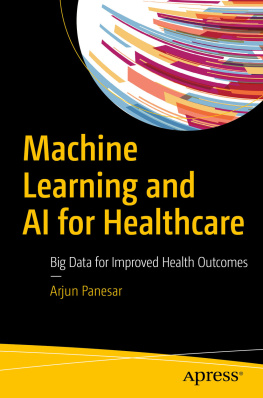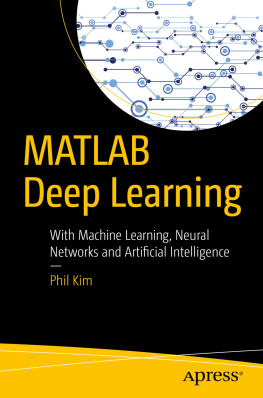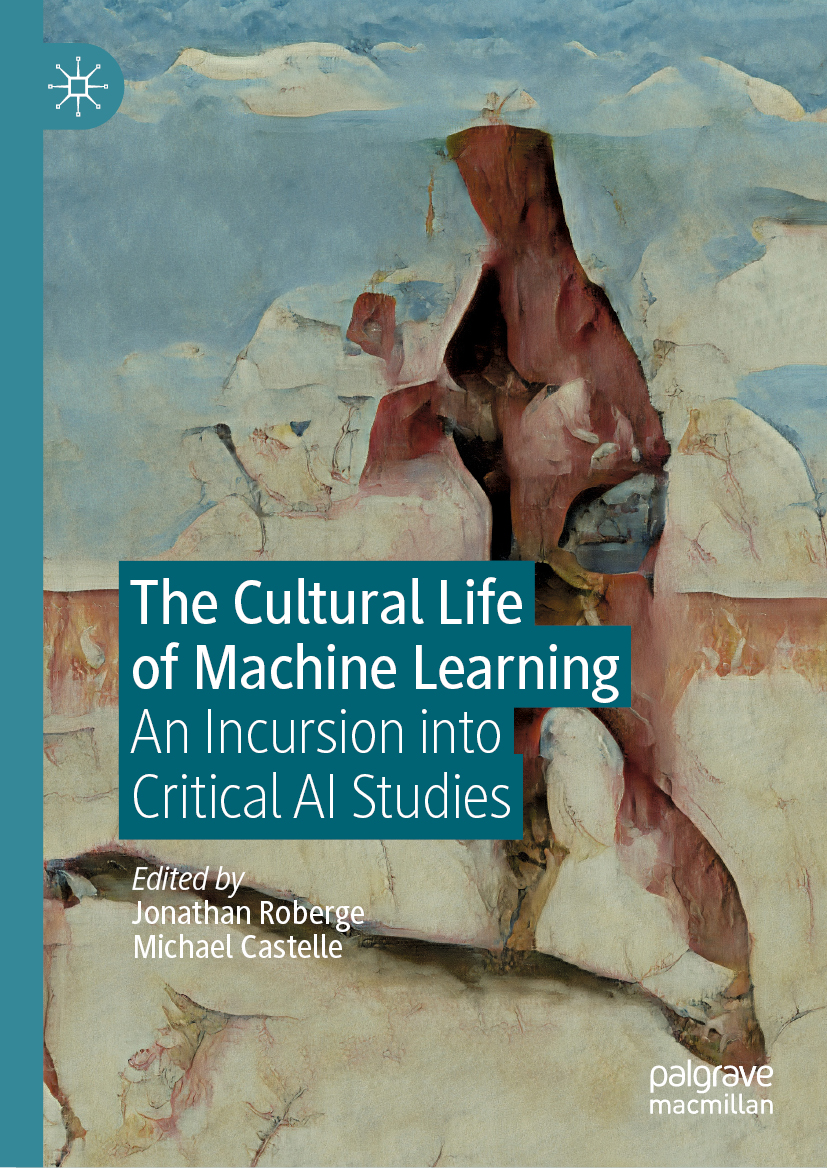Editors
Jonathan Roberge
Centre Urbanisation Culture Socit, Institut national de la recherche scientifique, Quebec City, QC, Canada
Michael Castelle
Centre for Interdisciplinary Methodologies, University of Warwick, Coventry, UK
ISBN 978-3-030-56285-4 e-ISBN 978-3-030-56286-1
https://doi.org/10.1007/978-3-030-56286-1
Chapter 2 is licensed under the terms of the Creative Commons Attribution 4.0 International License (http://creativecommons.org/licenses/by/4.0/). For further details see license information in the chapter.
The Editor(s) (if applicable) and The Author(s), under exclusive license to Springer Nature Switzerland AG 2021
This work is subject to copyright. All rights are solely and exclusively licensed by the Publisher, whether the whole or part of the material is concerned, specifically the rights of translation, reprinting, reuse of illustrations, recitation, broadcasting, reproduction on microfilms or in any other physical way, and transmission or information storage and retrieval, electronic adaptation, computer software, or by similar or dissimilar methodology now known or hereafter developed.
The use of general descriptive names, registered names, trademarks, service marks, etc. in this publication does not imply, even in the absence of a specific statement, that such names are exempt from the relevant protective laws and regulations and therefore free for general use.
The publisher, the authors and the editors are safe to assume that the advice and information in this book are believed to be true and accurate at the date of publication. Neither the publisher nor the authors or the editors give a warranty, expressed or implied, with respect to the material contained herein or for any errors or omissions that may have been made. The publisher remains neutral with regard to jurisdictional claims in published maps and institutional affiliations.
Cover illustration: Original artwork by Mario Klingemann
This Palgrave Macmillan imprint is published by the registered company Springer Nature Switzerland AG
The registered company address is: Gewerbestrasse 11, 6330 Cham, Switzerland
Notes on Contributors
Werner Binder
is an amateur Go player and an assistant professor for sociology at the Masaryk University, Brno (Czech Republic). After studies in Mannheim, Potsdam, and Berlin, he earned his Ph.D. at the University of Konstanz with a thesis on the Abu Ghraib Scandal. He is author of Abu Ghraib und die Folgen (2013, Transcript), coauthor of Ungefhres (2014, Velbrck), and coeditor of Kippfiguren (2013, Velbrck). He currently works on the history and methodology of cultural sociology, on populist discourses in Europe and the United States as well as on social imaginaries in the field of digital technologies. Among his recent journal publications are Biography and Form of Life. Toward a Cultural Analysis of Narrative Interviews (2019, with Dmitry Kurakin, SociolgiaSlovak Sociological Review) and Social Imaginaries and the Limits of Differential Meaning. A Cultural Sociological Critique of Symbolic Meaning Structures (2019, sterreichische Zeitschrift fr Soziologie).
Michael Castelle
is an Assistant Professor at the University of Warwicks Centre for Interdisciplinary Methodologies and a Turing Fellow at the Alan Turing Institute. He holds a Ph.D. in Sociology from the University of Chicago and a Sc.B. in Computer Science from Brown University. His current research focuses on the social and historical epistemology of deep learning, with an emphasis on its relationship to sociological and anthropological theory. His previous dissertation work involved the history of transaction processing and messaging middleware in the context of financial exchanges, including implications for a contemporary understanding of marketplace platforms and their regulation.
Daniel Greene
is an Assistant Professor of Information Studies at the University of Maryland. His research focuses on the future of work and the fight to define that future in policy, culture, and code. His forthcoming book from the MIT Press, The Promise of Access, draws on years of ethnographic research to investigate how the problem of poverty became a problem of technology, exploring the schools and libraries teaching people to code, why they embrace that mission, and how it changes them. Other research explores the design of surveillance systems such as military drones, police body cameras, and human resources software. His work has been published in venues such as New Media and Society, the International Journal of Communication, and Research in the Sociology of Work.
Orit Halpern
is an Associate Professor at Concordia University in Montral. Her work bridges the histories of science, computing, and cybernetics with design and art practice. Her recent monograph, Beautiful Data (Duke Press, 2015), is a history of interactivity, data visualization, and ubiquitous computing. She also directs the Speculative Life Research Cluster; a research lab working on media, infrastructure, and the Anthropocene at the Milieux Institute for the Arts, Culture, and Technology. Her next book is on extreme infrastructures, computation, ecology, and the future of habitat. She has also published and created works for a variety of venues including e-flux, Rhizome, The Journal of Visual Culture, Public Culture, and ZKM in Karlsruhe, Germany.
Anna Lauren Hoffmann
is an Assistant Professor with The Information School at the University of Washington. Her research is situated at the intersections of data, technology, culture, and ethics, with particular attention to the ways in which the design and use of information technology can promote or hinder the pursuit of important human values like respect and justice. Her work has appeared in various scholarly journals like New Media & Society, The Library Quarterly, and Information, Communication, & Society. Her writing has also appeared in popular outlets, including The Guardian, The Seattle Times, and the Los Angeles Review of Books.
Tho Lepage-Richer
is a Ph.D. Candidate and SSHRC/FRQ-SC Doctoral Fellow in the Department of Modern Culture and Media at Brown University. His research is broadly concerned with the history and epistemology of machine learning, with a specific focus on the transformation of neural networks from a model of the mind to a functional framework for pattern extraction. Working at the intersection of media studies and science & technology studies, he has published pieces on the commodification of facial recognition as well as on issues of quantification as they pertain to the projection of risk within individuals. Previously, Tho has been a visiting scholar at Charles University and at the Digital Democracies Group at Simon Fraser University.

